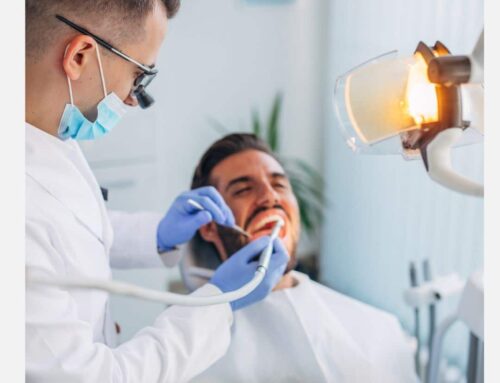Brush Twice a Day: The Foundation of Good Oral Hygiene
Brushing your teeth is fundamental to oral hygiene and a healthy smile. “Master the art of brushing for a healthier, brighter smile today!” Perfecting this skill involves more than routine; it’s about adopting the right technique—gentle, circular motions that effectively clean teeth while protecting gums. Ensure to cover all tooth surfaces, including the fronts, backs, and chewing areas, for comprehensive oral care.
Using a soft bristle toothbrush is crucial. It’s gentle enough to prevent damage to your teeth and gums while being effective in removing food particles and plaque. Hard bristles can be abrasive, potentially leading to gum recession and enamel wear.
Brushing twice a day is more than a recommendation—it’s a necessity for maintaining a healthy mouth. Morning brushing eliminates the bacteria that multiply in your mouth overnight. Evening brushing removes the day’s accumulation of plaque, food particles, and bacteria, thus reducing the risk of gum disease and tooth decay. Each brushing session should last for about two minutes, ensuring that all areas are adequately cleaned.
Remember, the toothpaste you use should contain fluoride, which helps in remineralizing tooth enamel and preventing cavities. Pay attention to the amount of toothpaste used – a pea-sized amount is sufficient for adults.
Flossing: Cleaning Between Your Teeth
Flossing is indeed an integral and often underestimated aspect of good oral hygiene. While many understand the importance of brushing your teeth, flossing can sometimes be neglected. However, it plays a crucial role in removing plaque and food remnants that accumulate in the tiny spaces between your teeth, areas where a regular toothbrush simply cannot reach effectively.
This action is vital for maintaining a healthy mouth. When you skip flossing, you leave a significant portion of your tooth surfaces uncleaned. This can lead to plaque build-up, which, if not removed, hardens into tartar. Tartar accumulation near the gumline is a key contributor to gum disease and can lead to other oral health problems.
Incorporating flossing into your daily oral hygiene routine is more than just a habit; it’s a commitment to your overall dental health. Regular flossing helps to remove plaque efficiently, which, if left unchecked, can contribute to tooth decay and gum disease. It’s important to use the correct technique while flossing to ensure it is effective. Gently slide the floss between your teeth and curve it around each tooth, making sure to go beneath the gumline.
For those who find traditional floss challenging to use, there are alternatives like floss picks, water flossers, or interdental brushes. These can be particularly helpful for individuals with braces, dental bridges, or limited dexterity.
Mouthwash: The Finishing Touch
Mouthwash is a powerful ally in your oral hygiene arsenal, offering benefits that extend far beyond just freshening your breath. It plays a crucial role in helping to remove plaque, a sticky film of bacteria that forms on your teeth. If not removed, plaque can harden into tartar, leading to cavities and gum disease.
When you use mouthwash, it reaches areas in your mouth that brushing and flossing might miss. This is especially important for cleaning around the gums and in between teeth, where harmful bacteria can accumulate. Some mouthwashes contain antibacterial ingredients that help to reduce the bacteria responsible for causing gum disease and bad breath.
Additionally, mouthwash can be a valuable tool for those who have a hard time maintaining a healthy oral environment due to medical conditions or physical limitations that make thorough brushing and flossing challenging. For example, people with braces or other dental appliances might find mouthwash helpful for reaching tricky spots.
Many mouthwashes also contain fluoride, which strengthens tooth enamel and helps to prevent tooth decay. This is particularly beneficial for maintaining strong teeth and preventing the onset of cavities, which contribute to tooth decay.
However, it’s important to choose the right type of mouthwash. Some are designed for cosmetic purposes, primarily to freshen breath, while others are therapeutic, offering oral health benefits like reducing plaque or gingivitis. Always check the label to ensure the mouthwash you choose aligns with your oral health needs.
Tongue Cleaning: Keeping Your Tongue Fresh
Your tongue is a significant factor in your overall oral health, often overlooked in daily hygiene routines. The surface of your tongue, with its grooves and taste buds, can harbor bacteria and food particles, leading to oral health issues and bad breath. This accumulation of bacteria can not only affect your breath but also contribute to tooth decay and gum disease if left unchecked.
Gently cleaning your tongue should be an integral part of your oral hygiene routine. Using a tongue scraper or a soft-bristled toothbrush, you can effectively remove the layer of bacteria and food debris that builds up. This simple act can have a substantial impact on maintaining your oral health.
When cleaning your tongue, it’s important to be gentle. Aggressive scraping or brushing can damage the sensitive tissue, leading to soreness or irritation. Start from the back of the tongue and move forward, rinsing your cleaning tool after each stroke. This method ensures that you’re effectively removing the build-up without causing harm.
Diet and Oral Health: What to Eat and What to Avoid
The connection between your diet and your dental health is profound and often underestimated. Consuming foods high in sugar and acid can have detrimental effects on your teeth, contributing to the development of cavities and the erosion of tooth enamel. These foods create an acidic environment in your mouth, which accelerates the growth of harmful bacteria that contribute to tooth decay and gum disease.
 Sugary foods, such as candies, desserts, and even some fruits, can stick to the teeth and become a feeding ground for bacteria. The bacteria produce acids that attack tooth enamel, leading to decay. Similarly, acidic foods and beverages like citrus fruits, tomatoes, and soft drinks can weaken enamel, making your teeth more susceptible to decay.
Sugary foods, such as candies, desserts, and even some fruits, can stick to the teeth and become a feeding ground for bacteria. The bacteria produce acids that attack tooth enamel, leading to decay. Similarly, acidic foods and beverages like citrus fruits, tomatoes, and soft drinks can weaken enamel, making your teeth more susceptible to decay.
To safeguard your dental health, it’s crucial to limit sugary and acidic foods. Instead, choose a diet that supports your oral health. Foods high in calcium and phosphorus, such as dairy products, nuts, and lean meats, can help remineralize tooth enamel. Crunchy fruits and vegetables, like apples and carrots, can stimulate saliva production, which helps wash away food particles and neutralize acids.
Additionally, foods rich in fiber are not only good for digestion but also act as natural toothbrushes, helping to clean teeth and gums. Drinking plenty of water is also essential. It helps rinse away food particles and bacteria and maintains a balanced pH level in the mouth.
Regular Dental Check-ups: Essential for Maintaining Oral Health
Regular dental check-ups are vital. Visiting your dentist in Greenslopes for professional cleanings and check-ups ensures that any potential problems are caught early.
Additional Oral Hygiene Tips
Beyond the basics, there are several other practices you can adopt for maintaining a shining, healthy smile. Here are additional tips to enhance your oral hygiene:
- Chew Sugar-Free Gum: Chewing sugar-free gum after meals can help clean your teeth by increasing saliva production, which naturally washes away food particles.
- Use an Antibacterial Rinse: An antibacterial mouth rinse can add an extra layer of protection against bacteria that contribute to tooth decay and gum disease.
- Wear a Mouthguard: If you’re active in sports, wearing a mouthguard can protect your teeth from injury. Similarly, if you grind your teeth at night, ask your dentist about a nightguard to prevent damage.
- Avoid Tobacco Products: Smoking or using tobacco products can lead to various oral health problems, including gum disease and tooth decay.
- Stay Hydrated: Drinking plenty of water helps maintain saliva flow, crucial for oral health. It helps wash away leftover food and residue.
- Be Mindful of Snacking: Frequent snacking, especially on sugary or acidic foods, can increase the risk of cavities. If you snack, choose healthier options and brush afterward if possible.
- Consider Dental Sealants: Particularly for children and teenagers, dental sealants can provide a protective layer against decay on the back teeth.
- Educate Children Early: Teaching children about good oral hygiene practices early sets them up for a lifetime of healthy teeth and gums. This includes proper brushing and flossing techniques.
- Check Your Toothpaste: Ensure your toothpaste contains fluoride, which strengthens tooth enamel and fights decay.
- Mind Your Toothbrush Storage: Store your toothbrush in an upright position and allow it to air dry. Closed containers can promote the growth of bacteria.
- Limit Alcohol Consumption: Excessive alcohol consumption can lead to dehydration and dry mouth, which can harm oral health.
- Be Gentle When Brushing: Brushing too hard can damage your gums. Use a gentle motion with a soft bristle toothbrush.
- Know When to Replace Dental Tools: Change your toothbrush or electric toothbrush head every 3-4 months, or sooner if the bristles are frayed.
- Pay Attention to Your Gums: Healthy gums are essential for dental health. If you notice signs of gum disease, like bleeding or swelling, visit your dentist.
- Regularly Clean Dental Appliances: If you wear braces, retainers, or other dental appliances, ensure they are cleaned regularly to maintain hygiene.
By incorporating these tips into your daily routine and attending regular dental check-ups at Road Dental in Greenslopes, Brisbane, you’re taking a big step towards preserving your beautiful smile and overall oral health.
Remember a healthy smile is a beautiful smile. With these tips and the support of Road Dental in Greenslopes, Brisbane, you can achieve and maintain a bright, beautiful smile.







Leave a Comment